Blog
Maldivian tourism is spluttering back to life, here’s how to make it roar
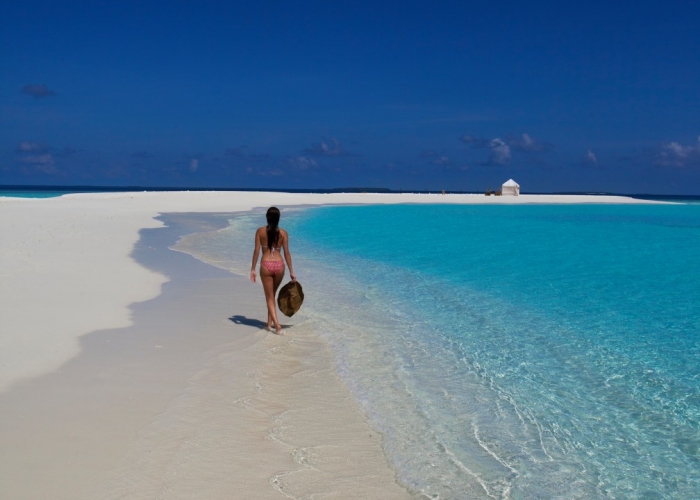
By Sonu Shivdasani
The border has reopened, guests have started to return, our resorts have sprung back to life — and our team have smiles on their faces and a sparkle in their eyes once again. After months of lockdown, it is wonderful to see tourists back in the Maldives.
Crises are good at bringing out the true character and ability of people, and Covid-19 has been no different. Bar few exceptions, Eva and I have been impressed by the character of our team at Soneva.
The crisis has also shone a spotlight on the character, and competence, of the world’s governments. When you read about some of the catastrophic responses to Covid-19 (the US and Brazil come to mind) I am relieved to be living in the Maldives.
Although the border is now open, all is not yet well. Many of Maldives’ major tourism markets – including the US, Britain, and Russia — have suffered the worst outbreaks of the coronavirus, and as I write, less than half of Maldivian resorts have reopened.
Many resort employees do not have smiles or sparkles in their eyes. They may have a minimum income and be safe from the virus in their home islands, but they are waiting to return to their resorts and resume their careers, and lives.
Five out of the seven main markets to the Maldives have restrictions on international travel:
- Italians, Britons, and Chinese have to quarantine for 14 days on returning home from the Maldives.
- Germany has no restrictions on travel to the Maldives and back. However, because of the cases in Male, the Maldives each week bounces from being defined as ‘low risk’ to ‘high risk’ and back again. The German definition, and the definition of other EU countries for a high-risk destination, is 50 cases per week out of a 100,000 population. Germany also has a travel warning for all travel outside the EU. Whilst this does not stop individual Germans, it has an impact on travel agents and tour operators selling the destination.
- Russians, meanwhile, are not even permitted to leave their country, even if they wanted to self-isolate on return.
Since the Maldives opened its border on 15 July, Britons have travelled here in greater numbers than almost any other nationality, despite the need to quarantine when they return home. But the few hundred or so British arrivals the Maldives has enjoyed is just a fraction of the number who were planning to visit this summer.
When the British government announced its ‘safe list’ of 60 countries that Britons could travel to without onerous restriction when they return, the Maldives missed the list. This resulted in big losses for the Maldives: British Airways scheduled two flights a week from London Heathrow for the entire month of August, but when the Maldives wasn’t included on the ‘safe list’, BA cancelled the flights. We received many cancellations from British guests for July and August; I suspect the same is true for other resorts and helps explain why so many remain closed.
For tourism to bounce back, it’s not enough to just reopen the international airports, we also need to conduct extensive diplomacy: engaging with the governments of our major markets to create ‘air bridges’ so that their citizens can travel to the Maldives and return home without quarantines. This requires a lot of effort, and constant, continuous diplomatic pressure.
It was, therefore, a huge relief to hear about the new air bridge between the Maldives and India, with the first flight from Delhi due to land this week. This diplomatic success shows what can be achieved. Unfortunately, it also highlights how persistent and tenacious we need to be. In spite of both governments announcing the air bridge and flights between the two countries, I have been told by clients that when they contact Air India, the airline is unable to give them any information on the new flight. The company is not taking any bookings for the announced Male flight. Also, the Indian government have not clarified whether Indian citizens will still have to quarantine on return from the Maldives. So, it seems to be two steps forward and one step back. Last week was certainly a very good week in the journey to resume travel between India and the Maldives. Yet, in spite of this announcement, we are still not there.
The spike in cases in Male is surely not helping the diplomatic efforts. We must repeatedly highlight to foreign governments that apart from Male — a completely separate island that tourists are currently not allowed to visit — the Maldives is relatively Covid free. This point needs to be continuously emphasised.
Test, test, test
If the world has learned anything from the pandemic, apart from how damaging fear itself can be, it is the central importance of testing to get the virus under control. At our resorts, we have introduced extensive testing for both guests and hosts.
Our guests are tested on arrival and isolated in the privacy of their villa until we receive the results, at which point they can move freely around the resort if the result is negative. Even our Maldivian team members that come from Covid free local islands are tested twice, and team members arriving from abroad are tested three times. This testing regime means that we can enjoy resort life, and engage with guests and hosts without fear.
But not all resorts test. Nor are people widely tested at the airport upon arrival. Testing is a more important short-term measure against Covid, even more than a vaccine. To demonstrate its safety as a destination, the Maldives should consider testing more.
The first draft of the Safe Tourism Guidelines issued by the Ministry of Tourism said that tourists would need a negative real-time PCR Test, taken seven days before arrival, and they would also be tested again upon arrival in the Maldives. These ideas were abandoned because in some markets it is difficult for people who are not symptomatic to obtain a Covid-19 test. Testing on arrival was also considered impractical because of the large number of tourists predicted to arrive in Male.
But tourism hasn’t roared back; it has returned with a whimper. To improve traveller confidence in the safety of the Maldives, the government should consider mandating, for holidaymakers coming from high-risk countries, either a negative real-time PCR test taken within 96 hours of entering the country or a test on arrival.
The president announced an agreement with China whereby Chinese citizens would not need to quarantine for 14 days on return from the Maldives. Unfortunately, to date, the Chinese government have not announced this to their citizens and we have received no Chinese tourists. Chinese travel agents are uncomfortable either recommending or booking Maldives holidays. Would the Chinese government feel more comfortable about opening travel to the Maldives if they were reassured by the fact that citizens from high-risk countries would have to either present a negative test certificate 72 hours before arrival or be tested on arrival itself?
Such a policy would not be onerous and would not dissuade citizens from high-risk countries for they would be able to either obtain a test in their home country before departing, or test on landing in Male airport.
In fact, out of the two principal airlines currently flying to the Maldives one of them, Emirates, insists on a negative test certificate before boarding the plane. So, many tourists are testing anyway. It will be easy to manage testing on arrival so tourists could be allowed to isolate in the privacy of their hotel room until the test results are received. This will reduce the pressure on the test turn-around time. Our experience at Soneva is that guests are happy to wait twenty-four hours in the privacy of their villa for their test results.
Extensive testing could also help in Male. Although Male is one of the most densely populated places in the world, the city’s population is relatively small compared with the potential testing capacity that could be installed. My understanding is that between the two main hospitals in Male, Indira Gandhi Memorial Hospital (IGMH) and ADK Hospitals, there is the capacity to carry out 2,500 tests a day.
ADK Hospital plans to add within the next month further capacity to carry out 1,200 additional tests per day. So, at present approximately 75,000 tests could be carried out per month in Male and this capacity will increase to over 100,000.
Stoking more fear
In fact, testing allowed the Maldives to catch the first case from a new arrival since the border reopened. That case was an expat supplier from a luxury resort. He was discovered with Covid because that resort tests all their employees and suppliers who come to their island. Unfortunately, the news of someone being found with Covid was released to the media, and the resort paid a reputational price for having implemented an effective testing regime.
That is a pity. It is important that we are discreet about such cases and that this information is kept private by the government. This might sound controversial, but let me explain the rationale:
Out of the 5,177 tourist arrivals in the month since the border reopened, six have reportedly been found Covid-19 positive — 0.1 per cent of all arrivals. This may seem like a small number, but that is only because the country currently has few tourists. Last year the Maldives received 1.5 million tourists. If 0.1 per cent of them were found with Covid-19, it would equate to 1,500 people. This is the equivalent of eight infected people, per resort, per year. If there is a media announcement about every single case found at every resort, this will cumulatively tarnish the reputation of the entire industry. Any potential tourist Googling a resort will find news articles about Covid-19 being detected on that island. This will dampen tourist arrivals.
Many people do not deal with fear rationally. They may avoid any resort, that has ever had a case of Covid-19, even though they may live in London, New York or Moscow, where they walk past people with the virus all the time. As Hans Rosling said: “We need to learn to control our drama intake. Uncontrolled, our appetite for the dramatic goes too far, prevents us from seeing the world as it is, and leads us terribly astray.”
The Maldives has entered a new phase: the national lockdown is over, the border is open, and tourists are trickling back in. But until that trickle becomes a stream, many resorts will remain closed and the country will continue to suffer. Life is starting to re-emerge after the crisis, but there are still too few smiles on people’s faces or sparkles in their eyes. Diplomacy, testing, and discretion are the watchwords of the day.
Editor’s Note: This op-ed was originally published on Linkedin by Sonu Shivdasani. Sonu is the founder and CEO of Soneva, which owns luxury resorts Soneva Fushi and Soneva Jani in the Maldives, and Soneva Kiri in Thailand.
Blog
How to diversify Maldives’ tourism-heavy economy
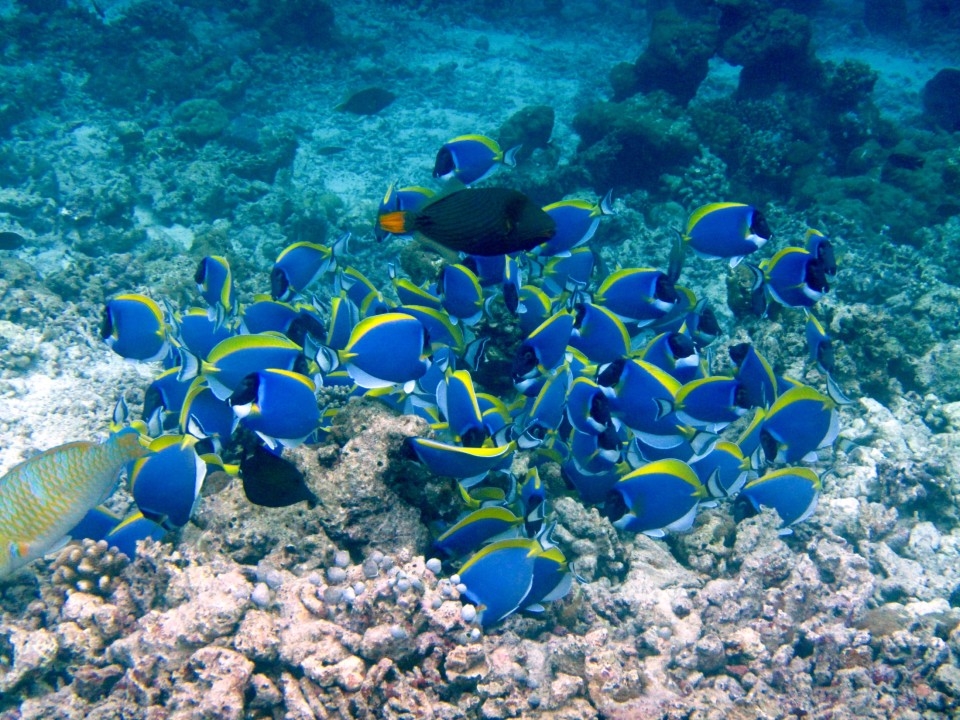
By Sonu Shivdasani
At Soneva, we adhere to the principle that local is best. Whether it’s food produced by our organic vegetable gardens or the fish we source from neighbourhood fishermen, local produce is always fresher, better tasting, and more sustainable.
Producing things within the country, rather than importing everything from abroad, also makes economic sense. And the greater variety of products and services you produce in-house, the easier it is to diversify the economy, making it more resilient.
In an Op-ed that I wrote last year, I mentioned that, “The Maldives is one of the world’s best places to operate a resort. And yet, the cost of borrowing the money to build one is eye-wateringly high. How do we explain this paradox?”
During a recent conversation with a Male-based banker, I was told why lending rates in the Maldives are so high: there is a perception of risk among the financial community because the Maldivian economy is so dependent on tourism.
As Maldivian President Ibrahim Solih, said during his National Day speech on November 11, 2020: “Covid-19 has made us realise our economy cannot solely depend on tourism. This is something we have always debated, yet failed to adequately address.”
It’s easy to understand why the Maldives wants to put some of its eggs in baskets other than tourism. Covid-19 has swung a wrecking ball at Maldivian tourism, which in turn has devastated the government’s finances, foreign currency reserves, and the value of the Ruffiya, which are all dependent on tourist dollars.
Though tourism is recovering since the border reopened in July, and many resorts (including Soneva Fushi and Soneva Jani) are currently as busy as they were last year, a few good months at the end of the year won’t make up for the carnage of March-July. And so, how to diversify the Maldives — a country that’s 99 per cent ocean, and with a small population?
Extracting better value from Maldives’ fish catch
An obvious place to start is in areas the Maldives already does well: fishing. Although the Maldivian fishing industry is already large, much of the value of the fish is in the processing, not the catching.
Here, the Maldives could improve. Instead of selling frozen, whole tuna to Thailand, more money would be made if all Maldivian fish were canned in the Maldives. The fisheries ministry recently said as much; announcing plans to expand cold fish storage.
The branding of Maldivian tuna could also be enhanced. The Maldives operates the world’s most sustainable fishing fleet. Every fish is caught by hand, with a pole and line, one-by-one. Nets and long-lines are banned, meaning there is almost no by-catch of sharks, turtles, dolphins and other charismatic or endangered sea creatures.
More could be made of this inherent strength, especially as consumers in Western export markets demand more sustainable food. Maldivian tourism is globally renowned for being the world’s most luxurious. Maldivian fish should be equally known as the world’s most environmentally friendly.
Growing our own food
Although the Maldives is 99 per cent sea, let us not forget about what can be done on that 1 percent of land. It’s heartening to see a big government push towards growing more food. There is huge demand, especially from resorts, for locally-grown, fresh produce.
Both Soneva Fushi and Soneva Jani have highly productive fruit, vegetable and herb gardens that supply the bulk of the ingredients for our restaurants. What we don’t produce ourselves, we strive to buy locally to maintain freshness and reduce carbon emissions. Over the summer Soneva also released a series of video tutorials based on our experiences, showing ways to farm in the Maldives, either on a commercial scale or in a window box.
Looking beyond farming and fishing, another opportunity the Maldives could explore further is its relationship with India.
The $1.4 billion assistance granted by India in 2018, and the more recent economic aid package, have both been of great help. But, rather than aid, the Maldives should engage with India to see how it can grow its economy both through tourism and non-tourism means to develop closer ties with this populous and economically significant neighbour.
Potential offshore financial hub
For example, the Maldives could enter into a double tax treaty with India. The Maldives could also negotiate with India, to allow Indian citizens to make personal investments in the Maldives and be able to remit more than $250,000 — the current Reserve Bank of India limit on any foreign currency remittance by an Indian in a particular year. In addition to this, perhaps more Indians could be allowed to pay for personal investments in the Maldives with Rupees. These Rupees could then be used by the Maldives to buy Indian goods.
With a double tax treaty with India in place, the Maldives could explore the opportunity to become a financial centre. Could the Maldives become India’s offshore financial centre, playing a similar role that Hong Kong does to China?
There is a closer Indian Ocean example; in 1989, Mauritius’ government decided that its economy was too dependent on tourism and sugarcane, so it chose to make the country an offshore financial centre.
Mauritius initiated double tax treaties with 18 African countries and India. Like the Maldives, Mauritius’s tax rate was considerably lower than the 18 African neighbours and India. As a result, foreign investors who wanted to invest in India or these 18 African countries set up companies in Mauritius, helping them to legally reduce their tax bills. There are now 20,000 offshore Mauritius companies.
On average, the basic statutory fees that the Mauritius government charges, such as directors fees, and stamp duties for operating companies, come to $5,000 per year. For all the offshore companies registered in the country, these fees tally up to $100 million per year — a huge source of revenue for the government.
Moreover, according to a recent report, Mauritius-incorporated offshore companies have $630 billion of assets. This is 50 times Mauritius’ GDP. If we assume that these companies achieve a 10 per cent return on capital, that means they have net profits of around $63 billion. It is likely that the Mauritius government received more than one per cent of these profits as taxes. Even at one per cent, this is the equivalent of $630 million of revenue to the government.
It has taken Mauritius 30 years to get to where it is. If the Maldives starts today, potentially in 30 years’ time, the government could generate more revenue from offshore finance than from tourism. There are many considerations when setting up an offshore centre. We have recently seen a global backlash against tax havens, so this will require a lot of thought and consideration. But, it is an opportunity.
Second-home schemes and outsourcing
Introducing second home schemes for foreigners is another way to diversify the economy. The government recently changed the law to allow foreigners to become resident in the Maldives if they invest $250,000 dollars, and deposit another quarter of a million in a local bank’s fixed deposit account for at least five years. Similar programmes, in countries such as Malaysia, are very popular. They make it easier for the government to sell debt and help ease dollar shortages.
Lastly, the Maldives could also look to offshore business process outsourcing, which has made cities such as Bangalore wealthy. These days, a British or American customer ringing into a bank call centre is as likely to speak with someone sitting in Bangalore or Hyderabad as Birmingham or Houston. While the Maldives does not have the huge pool of labour that India does, young Maldivians speak English well, so offshore processing could be done, albeit at a smaller scale.
The Maldives has paid a heavy price this year for its over-dependence on tourism. Nobody predicted Covid-19, or the impact it has had on the economy. But, as any good investor will tell you, the best way to mitigate risk is through diversification.
Editor’s Note: This op-ed was originally published on Linkedin by Sonu Shivdasani. Sonu is the founder and CEO of Soneva, which owns luxury resorts Soneva Fushi and Soneva Jani in the Maldives, and Soneva Kiri in Thailand.
Blog
A day in the life of Amilla Maldives’ HR Special Projects Manager
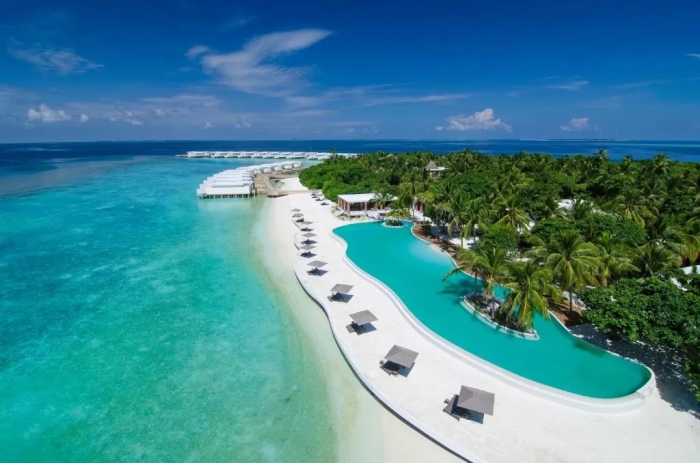
Hussain is a well-known face at Amilla Maldives as the resort’s energetic Assistant Manager of Recreation. With lower demand due to the pandemic this year, Hussain pivoted to a three-month secondment in HR Special Projects.
These unique projects are aimed at maximising the quality of life for everyone working at Amilla. They range from renovating the Islanders’ accommodation block to transforming the staff bar into a chilled-out café-style community space.
This dynamic and multi-talented Islander has also helped plan and run staff events — creating some dazzling decorations in the process. He has even channelled his inner artist to create paintings to brighten up staff areas.
Hussain originally hails from Kurendhoo, a small island in Lhaviyani Atoll. We caught up with him to find out more about how he’s ringing in the changes behind the scenes at Amilla.

How does a typical day begin for you?
With my current role, I don’t so much follow time as follow projects and people. So, I normally wake up around 6am, read the news from the Maldives and around the world for half an hour, do 15 minutes of stretching and warming up for the day, take a shower and then I’m ready to start my day.
Often, when I start something, I’ll have to finish it, otherwise I just cannot sleep! So, sometimes, if I had a late night, I’ll wake up at around 7am but never later than 7.30am, so I can get things done.
Every day can be different depending on my tasks, but one of my favourite things to do is making decorations for staff events. Everybody says I’m really good at it. I also like doing carpentry and painting abstract stuff. The management has given me a lot of opportunities to try out new ideas and the freedom to learn new things, which I really appreciate.
How closely do you work with the other Islanders on your projects?
The best resource of any company is their staff. If we don’t care for them, they won’t enjoy their jobs or their life with us. So, our first priority is always our staff and our guests.
Getting feedback every day is the biggest thing in HR Special Projects. Before we make any new service or changes, we get feedback from the staff. That’s because we need to give them what they want where this is possible. Normally, lunchtime is the best time to go speak to them. The best way I’ve found to do it is to have a friendly chat. I just go to wherever they are, have a coffee with them, then ask them in a friendly way. Otherwise, if I just ask them formally, they might not open up.
What has been your favourite special project to work on so far?
I thought something I really had to do was provide what the Islanders really need, so I started working with the Bliss tuck shop, because it’s difficult to get what they need from other islands, especially with the Covid-19 restrictions. So, I’ve changed the concept and created more options as well as redesigned the shop. Red Bull is the most popular item, of course! It’s their basic need, they enjoy it a lot. But although we have a canteen, we didn’t have anything like a café area for them to enjoy the drinks they bought from the shop.
What was the solution?
We have a nice bar which needs a little attention to evolve the concept into something new because as Maldivians, with our culture, we’re not allowed to drink alcohol. So, if we have a bar where people think it only serves alcohol, it means some of the staff can be there, but some might not feel comfortable. I’m leading on the project to transform the bar into an area where the Maldivian staff and expat staff can enjoy things together as one family. This new concept will be more than a bar, it’ll be more like a café area where staff can also do things like book a cinema night, or celebrate a private birthday party with their friends, and so on.
How did you end up in this special projects secondment?
I went back to my island when the Covid-19 pandemic hit but they called me to ask if I was interested in this role. Before this I was working in recreation. I love being active and working with guests and wanted to be back at Amilla with this new opportunity to help me grow and have new experiences.
Can you tell us about your journey to working in recreation?
When I was a teenager, I loved sports and I wanted to play sports professionally, but unfortunately there weren’t many opportunities in the Maldives at the time, so I decided it wasn’t a good idea. Then I decided that recreation at a resort would be a good job because then you get to do everything. But it was hard to get into, so I actually started working in childcare at another resort.
I love kids and it was fun. I spent four years there and became Kids Club Manager, but I still wanted to get into recreation. So, I took a step down to become a Recreation Supervisor at another resort and then finally became Recreation Manager. It was hard to take a step backwards, but it was worth it .
Then I got a knee injury and couldn’t do sports anymore. I had to slow down and from there I decided to learn more about creative art and tennis too. Then this year I got offered the chance to join the HR team, taking care of special projects and staff communications.
I learned one thing from my past; I didn’t follow my passion when I was a teenager to become a professional sports player because of the restrictions including my injury. But I ended up learning many other things that I can use to create beautiful things or to make magic, as our HR Director says! And now with the knowledge and experience I have, I just want to help other people to be happy and follow their passions.
For more information about the resort and bookings, please email sales@amilla.mv or visit www.amilla.com
Action
Sustainable development of coral reefs at Cinnamon Dhonveli Maldives

Renowned for its iconic stunning over-water suites, Cinnamon Dhonveli Maldives is a beautiful tropical island resort offering exclusive access to the classic Pasta Point surf break, described as the “wave-machine” of the North Malé Atoll due to its consistent four to six foot waves.
Green Globe recently recertified Cinnamon Dhonveli Maldives.
The resort first started their coral restoration project in 2018 to help replenish diminishing coral reefs and have continued to develop this initiative since then.
“Coral reefs represent some of the world’s most spectacular beauty spots. They are also the foundation of marine life, without them many of the sea’s most exquisite species will not survive,” Sanjeeva Perera, General Manager at the resort, explained.
“The awareness and in-depth knowledge we receive from Green Globe during the recertification process continues to guide us on the correct path to take in the bold steps forward toward the sustainable development of coral reefs that will benefit future generations in the Maldives.”
Coral reefs in oceans all around the world are dying. It is estimated that nearly one sixth of these reefs will be dead within the next twenty years.
In keeping with the commitment of Green Globe members to manage and operate businesses to the highest level of sustainability, the Cinnamon Dhonveli team initiated this mariculture project two years ago focusing on the pre-emptive restoration and rejuvenation of reefs affected by coral bleaching.
The project uses ‘reef balls’ as artificial reef structures implanted with Mari corals that are cultivated in special nurseries. The reef balls are then transplanted onto the bare substrate to grow.
With marine conservation at the heart of their sustainability vision, the Cinnamon Dhonveli team is committed to making their artificial coral reef propagation project a great success in the Maldives.
They also aim to set up a Marine Discovery Centre to educate visiting youth and children in coral reef propagation, environmental awareness, and the rearing and rescue of sea turtles.
Located no more than a 25-minute speedboat ride from the main Velana International Airport, Dhonveli’s proximity and diversity combine to make it one of the most popular destinations in the Maldives.
The island is constantly buzzing with action as divers, surfers and beach bums alike find a common ground in the world of excitement this little island has to offer. Magnificent waves and a policy of sustainable surfing combine to make Pasta Point at Cinnamon Dhonveli one of the most sought after surfing locations by award-winning surfers from around the world.
Large families, groups of friends, divers and snorkelling buffs all seem to find a comfortable common ground in the heady atmosphere of the 16-acre island as well. Sink your teeth into our succulent seafood and indulge in the theme nights at each of the three restaurants with the best of international cuisine. Unwind at the spa or sink into the comforts of the 148 plush rooms.
-
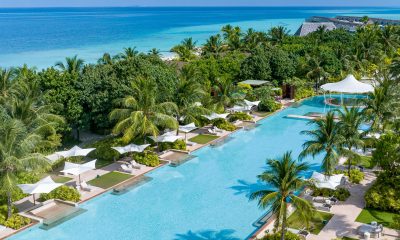
 Culture1 week ago
Culture1 week agoKuda Villingili presents family-focused Eid al-Fitr experience in Maldives
-
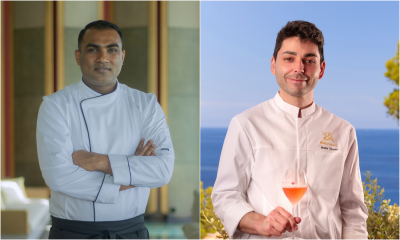
 Cooking1 week ago
Cooking1 week agoMichelin-starred Chef Jaume collaborates with One&Only Reethi Rah’s TAPASAKE for four-hands dinner
-
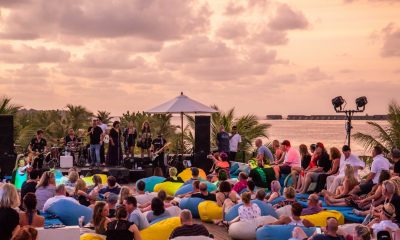
 Entertainment1 week ago
Entertainment1 week agoStrong demand sees Kandooma Maldives 2026 concert series selling out early
-
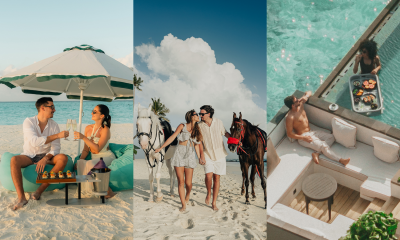
 Featured1 week ago
Featured1 week agoSun Siyam Resorts marks Valentine’s season with multi-resort celebrations
-
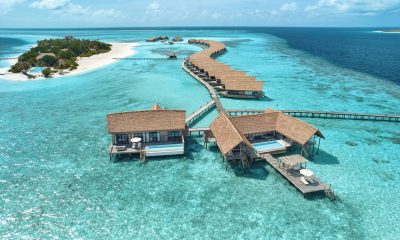
 Love1 week ago
Love1 week agoCOMO Cocoa Island, COMO Maalifushi unveil Lunar New Year, Valentine’s Day celebrations
-
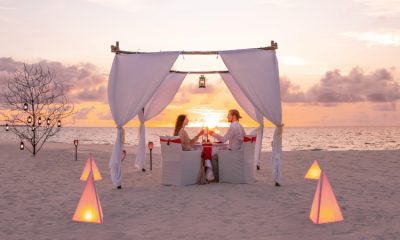
 Featured6 days ago
Featured6 days agoCoco Bodu Hithi and Coco Palm Dhuni Kolhu curate distinct Valentine’s escapes
-
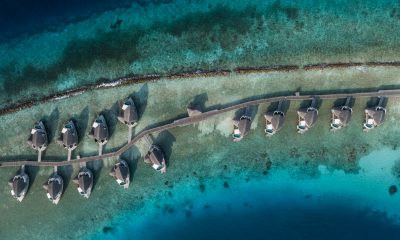
 News5 days ago
News5 days agoJW Marriott Maldives Resort & Spa invites families to celebrate Eid Al-Fitr in island luxury
-
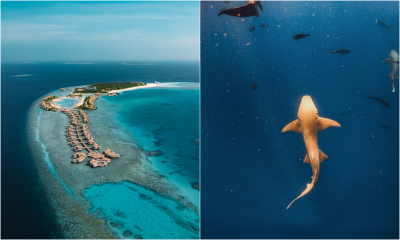
 Action5 days ago
Action5 days agoInterContinental Maldives Maamunagau Resort launches ‘Swim with Nurse Sharks’ experience











